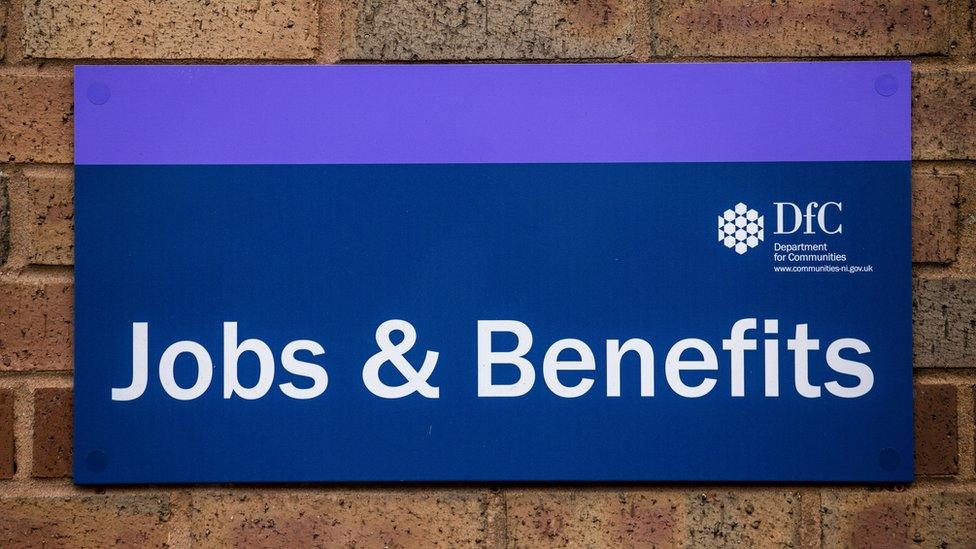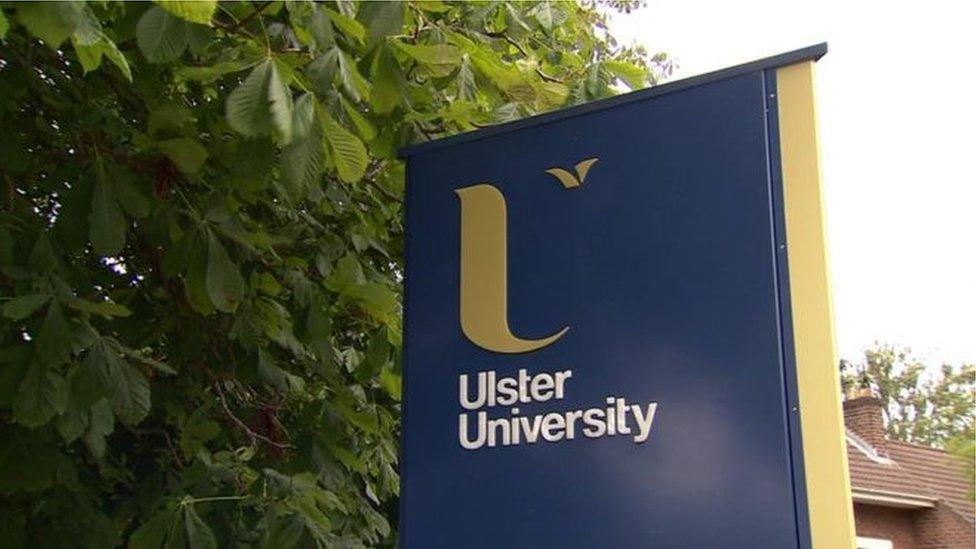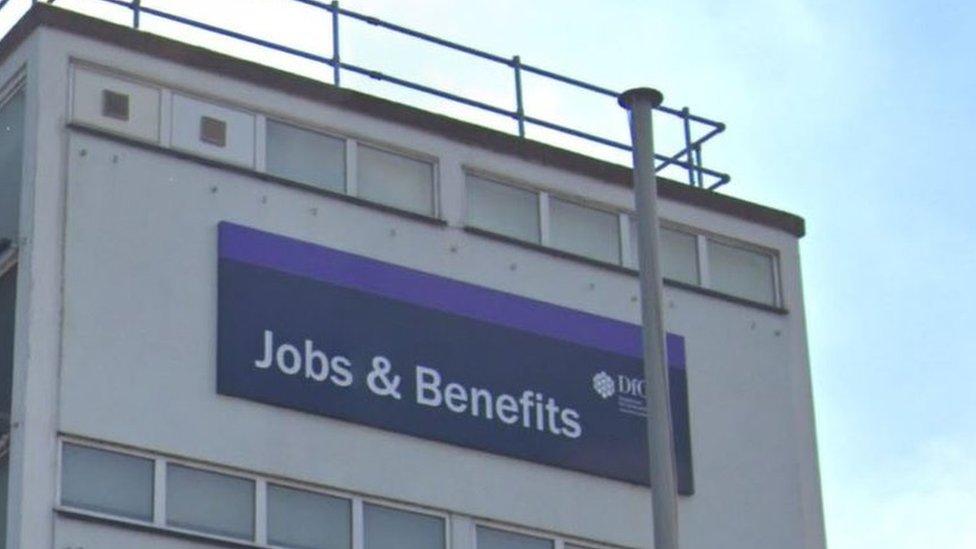Coronavirus: Young people 'face trap of world without work'
- Published

The economic damage of the coronavirus crisis will hit young workers hardest, an Ulster University study has suggested.
It estimated that youth (ages 16-24) unemployment in Northern Ireland could jump from 8% to 26% in 2020.
That compares to an estimated unemployment rate of about 10% for workers aged 25-49 this year.
The study uses official labour market data to estimate which groups are most at risk of unemployment.
It was produced by Ulster University Economic Policy Centre researchers Mark Magill and Marguerite McPeake., external
The study showed that young people are disproportionately employed in hospitality, which is likely to be the last sector to emerge from lockdown.
'Unemployment rate could spike'
Just over 10% of all employees in Northern Ireland are under 25, but that age group accounts for 36% of hospitality employees.
The study said the impact of the lockdown on hospitality has been "intensively felt by young people".
It also estimated that 45% of under-25s have been furloughed or laid off since the start of the crisis, compared to 25%-30% for older age groups.
A large proportion of furloughed workers will hopefully get their jobs back, but the study said "jobs within sectors significantly impacted by the restrictions are at a higher risk of being permanently lost".
It also warned that the youth unemployment rate could spike in the autumn when students leaving school, colleges and universities will be seeking to begin their careers.
In a typical year, about 25,000 young people enter the Northern Ireland labour market.

The study was carried out by Ulster University researchers
"With the number of vacancies collapsing and high numbers of jobs in the existing labour market at risk, such a large number of young people entering the search for work will put upward pressure on the youth unemployment rate," the study said.
"It risks long-term scarring effects on the labour market prospects of an entire cohort of education leavers."
The study recommended that a set of measures be targeted at young people.
These include uncapping undergraduate numbers to keep more young people in education and offering a job or training guarantee for all young people unemployed for three months.
It said these policies would be expensive but "given the extent of the risk to young people being trapped in a period of worklessness and the associated scarring effect over the course of a person's working life, the long-term benefits may well outweigh the costs".
- Published19 May 2020

- Published9 April 2020

- Published9 April 2020
